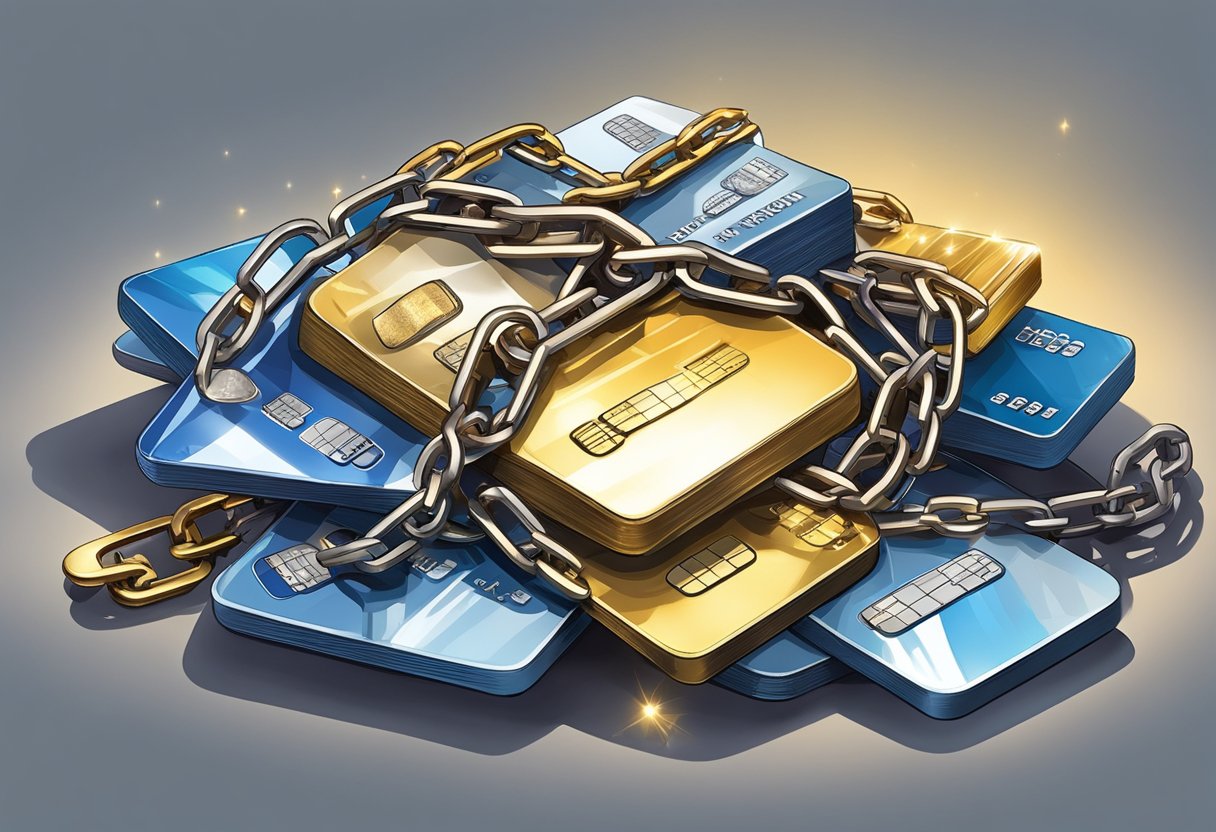Navigating the complex landscape of credit card debt forgiveness can be challenging, with a plethora of myths and misconceptions obscuring the reality of the process. Many individuals facing overwhelming credit card debt are drawn to the concept of debt forgiveness as a lifeline, imagining a swift and pain-free escape from their financial troubles. The truth, however, is that credit card debt forgiveness is a nuanced topic, with various pathways and consequences that can significantly affect one’s financial health.

Understanding these nuances is critical as credit card debt forgiveness often comes with strings attached that could impact one’s credit score and tax obligations. Rather than an outright erasure of debt, forgiveness sometimes involves negotiations with creditors or enrolling in specific programs designed to ease financial burdens. It’s essential to recognize that each individual’s situation is unique, and the road to resolving credit card debt may involve a series of informed choices and strategic planning.
Key Takeaways
- Credit card debt forgiveness is a process filled with complexities, not the simple solution many presume it to be.
- The implications of debt forgiveness can extend to credit health and tax liabilities, underscoring the importance of informed decision-making.
- Effective management and reduction of credit card debt require understanding the available strategies and potential outcomes.
Understanding Credit Card Debt Forgiveness
Credit card debt forgiveness can be a lifeline for those struggling with unmanageable debt, but it’s important to understand the intricacies and consequences involved. It’s not a one-size-fits-all solution and may impact various aspects of one’s financial health.
Debt Forgiveness vs. Debt Settlement
Debt forgiveness and debt settlement are often confused, yet they refer to different financial strategies. Debt forgiveness occurs when the creditor allows a debtor to pay less than the total amount owed, effectively dismissing the remaining debt. This can be a result of financial hardship or government debt relief programs specifically designed to provide aid.
In contrast, debt settlement is a negotiation process where the debtor agrees to pay a lump sum that is less than the full amount due. Debt settlement typically happens through a third-party company and might not fully absolve the remaining balance.
How Forgiveness Impacts Credit Scores
The impact of debt forgiveness on a credit score can vary. Initially, it may cause a dip in one’s credit score due to changes in the debt-to-credit ratio and potential notations of settlement on the credit report. However, reducing overall debt can lead to a gradual improvement in credit health over time. It is essential to assess how these changes might affect future creditworthiness.
Credit Card Forgiveness Programs and Eligibility
Credit card forgiveness programs are not broadly available and typically target instances of extreme financial hardship. To be eligible for such programs, one usually must demonstrate an inability to repay the debt due to circumstances like job loss, medical emergencies, or other significant financial setbacks. Some credit card forgiveness may result from negotiations with the creditor or through structured debt relief initiatives. Each program has its own criteria and implications, and understanding these particulars is crucial for those considering this route to debt management.
The Legal and Financial Implications of Debt Relief

When individuals are saddled with credit card debt, debt relief options each carry distinct legal and financial implications. From bankruptcy to negotiating debt settlements, understanding these nuances is crucial.
Bankruptcy: Chapter 7 vs. Chapter 13
Chapter 7 bankruptcy, often referred to as liquidation bankruptcy, allows individuals to erase most debts. In this process, a bankruptcy trustee may sell certain assets to pay off creditors. In contrast, Chapter 13 bankruptcy is a reorganization of debt, enabling the debtor to keep their property while making payments through a court-approved plan, typically over three to five years.
-
Chapter 7:
- Eligibility: Means Test required
- Assets: Liquidation possible
- Duration: Approximately 4-6 months to discharge
-
Chapter 13:
- Repayment Plan: 3-5 years
- Debtor’s property: Retained
- Legal discharge: Granted after plan completion
Negotiating with Credit Card Companies
Debtors may negotiate with credit card companies to reduce the total amount owed, often by explaining their financial hardship. The success of such negotiations largely depends on the creditor’s policies and the debtor’s negotiation skills. A settlement can result in paying less than the full amount owed but may still impact credit scores.
- Negotiation outcomes:
- Lump-sum settlement: Partial repayment of the total debt
- Payment plan: Reduced monthly payments
- Charges: Debt may continue to accrue interest until settled
Tax Implications of Forgiven Debt
The Internal Revenue Service (IRS) often views forgiven debt over $600 as taxable income. Following debt forgiveness, creditors may send an IRS Form 1099-C, which reports the canceled amount. Debtors must report this on their tax return, which could increase their tax liability.
- Tax documents:
- Form 1099-C: Cancellation of Debt
- Taxable income: Forgiven debt must be included
- IRS Publication 4681: Possible exemptions or exclusions
This section should have provided a clear understanding of the legal and financial facets of navigating debt forgiveness and the associated implications of such actions on one’s financial standing.
Strategies to Manage and Reduce Credit Card Debt
When faced with credit card debt, consumers have several structured options to manage and reduce their balances. These strategies can contribute to a path toward financial stability when chosen carefully based on individual circumstances.
Debt Management Plans
Debt Management Plans (DMPs) are agreements between debtors and creditors mediated by a nonprofit credit counseling agency. In a DMP, consumers make a single monthly payment to the counseling agency, which then distributes the funds to creditors. This plan often comes with lowered interest rates and waived fees, allowing for more of the payment to go toward the principal debt.
Debt Consolidation Options
With debt consolidation, individuals can take out a new loan, a debt consolidation loan, to pay off multiple credit card debts. This results in a single payment, typically at a lower interest rate, which can streamline budgeting and potentially reduce the total interest paid over time. However, for this to be effective, the consolidation loan should have terms that are better than the existing debts combined.
Credit Counseling Services
Credit counseling services provide professional advice on managing money and debts and help consumers develop personalized plans to solve their financial problems. Services offered by accredited nonprofit credit counseling agencies can include helping develop a budget, educational materials and workshops, and free or low-cost counseling on debt management.
Frequently Asked Questions
In this section, we address common inquiries surrounding the topic of credit card debt forgiveness, providing factual answers that demystify the process and its effects.
Can credit card debt be legally forgiven?
Credit card debt can be legally forgiven through settlement negotiations with the creditor or through bankruptcy proceedings. However, creditors are under no obligation to forgive debts and typically only do so in specific circumstances.
What government programs are available for credit card debt relief?
There are no direct government programs that provide credit card debt forgiveness, but there are government-approved credit counseling agencies that can assist in debt management and consolidation.
How does credit card debt forgiveness work after a cardholder’s death?
After a cardholder’s death, their credit card debt is usually handled by their estate. If the estate cannot cover the debt, it may be written off. Debt is not automatically forgiven and should not be assumed as such without consulting the estate’s executor.
What should be included in a credit card debt forgiveness letter?
A credit card debt forgiveness letter should include the cardholder’s account information, the reason for seeking forgiveness, any supporting financial documents, and a proposed solution satisfying both the cardholder and the creditor.
Are there any implications for personal credit scores when debts are forgiven?
Debt forgiveness can negatively impact personal credit scores, especially if it results from a settlement. Forgiven debt often gets reported to credit bureaus and may be considered taxable income.
How has the COVID-19 pandemic affected credit card debt forgiveness policies?
The COVID-19 pandemic has led some creditors to offer more flexible repayment options and temporary forbearance, though it did not fundamentally change policies on debt forgiveness. Financial institutions are encouraged to work with affected customers.